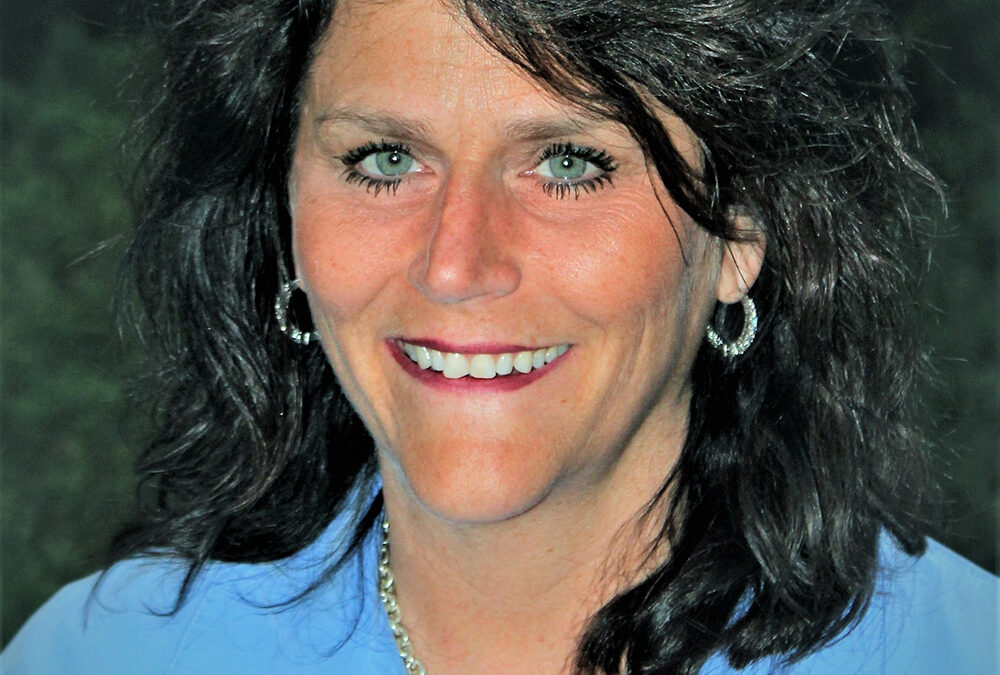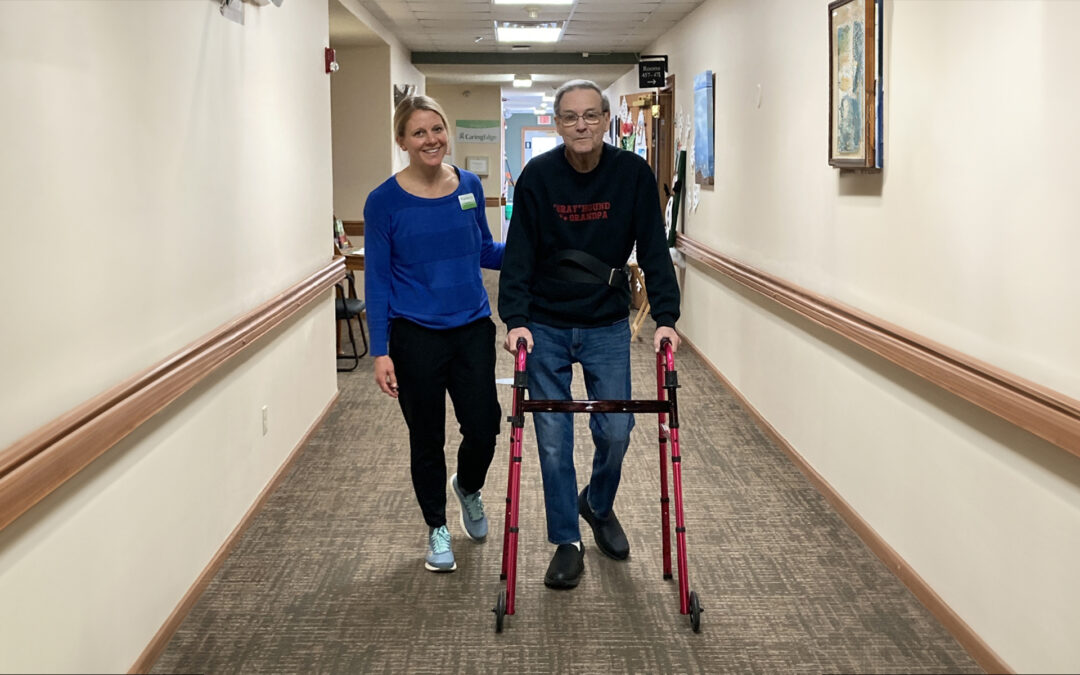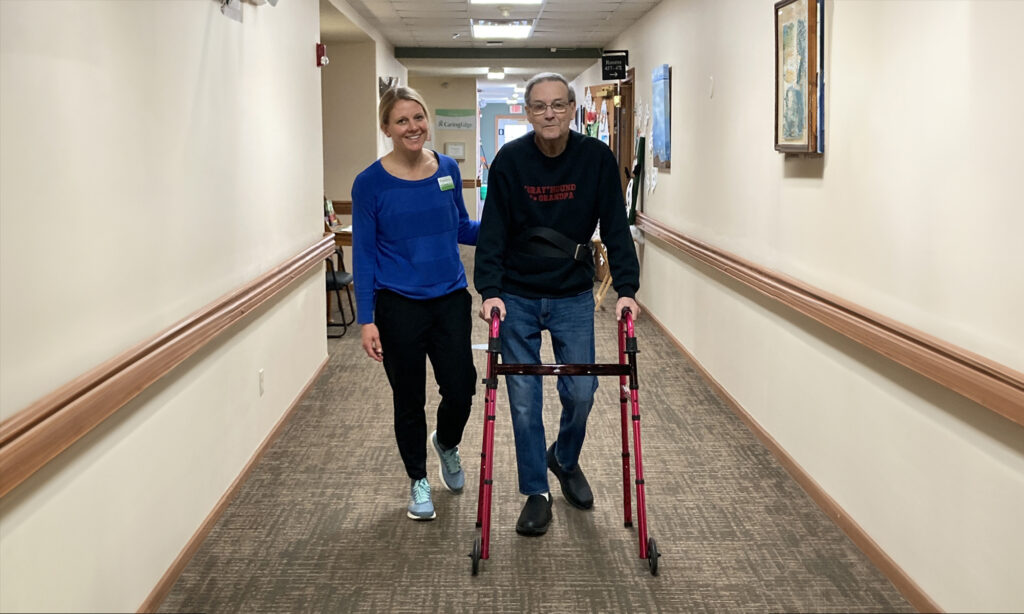
Blazing Trails for a Bright Future

To all the women rolling up their sleeves to make the world a better place, we celebrate YOU this month! It isn’t news to us that women can do all things, and we’re honoring one of ours who keeps getting it done.
This Women’s History Month, we’re celebrating Angela Hilleshiem, one of our selfless leaders who has helped inspire many. Angela is the president, CEO, and founder of All Care Health Solutions, CaringEdge, and president and CEO of One Source Home Health and Hospice. These home health organizations serve over 1,000 patients every day across Idaho, Minnesota, Montana, North Dakota, South Dakota, and Wyoming.
About Angela:
Angela started her career as a CNA when she was 17 before becoming an RN. Once she got her degree, she quickly moved into a management role as an assistant director of nursing. She enjoyed her leadership role back then so much that she’s remained in leadership.
Today, she has 40 years of experience in healthcare. In the almost two decades she’s spent working in senior living, she has overseen the operations of 137 assisted living facilities and 25 skilled nursing facilities.
Angela’s love for people doesn’t stop when she’s off the clock. She also serves as board president for the Alice Foundation, a nonprofit program that provides temporary custodial care, short-term basic living expenses, transportation, advocacy, medication expenses, assistive devices, utilities, appliances, and companionship to those with chronic diseases and life-threatening illnesses. Angela is also a member of the Idaho Health Care Association board. When she’s not helping others, Angela spends as much time as she can with her daughter.
Building Success:
As it’s often said, great leaders aren’t just born; they’re made. Angela explained that the secret to her success has been surrounding herself with like-minded colleagues who provide care with purpose. She said, “Care is at the forefront of what we do. You can teach a job; you cannot teach or change a personality. A good, honest steward can be taught the job. Everything is possible through education. You have to empower those who work with you to be great. Showing them that what they do is important and matters helps everyone to be able to offer patient care.”
Aside from growth across her organizations, retaining staff has also been a significant success even during challenging times; “We’ve had some excellent key leaders here since we started. It’s not about being at the top; it’s about seeing what everyone else has built. It really isn’t about me; it’s about the people and their growth. The patient care has been extraordinary. We’ve seen incredible outcomes, which comes back to what we do as leaders. It’s been awesome for me to see how people are a part of the solution,” Angela continued.
Role Models:
While Angela has learned from many colleagues and mentors, she credits her parents with the most significant impact. “There have been so many people who have touched my life in so many ways. My parents, specifically, were genuinely encouraging. They always told me I could do whatever I wanted.”
Angela added, “My dad didn’t want me to fall into normal, traditional roles. He said it doesn’t matter if you’re male or female; gender roles should be out of the equation. He taught me how to work hard—I am usually the first person here and the last to leave. My dad was a strong role model.”
Work/Life Balance Thoughts:
A hot topic today is how to balance work and life. Angela has a clear point of view about managing successful businesses and not feeling bogged down; “Love your work so it doesn’t unbalance the rest of your life. It has to do with your passion and finding your purpose so you’re fulfilled at work and at home. What matters to me is being there to help people. Helping others fills my bucket. If I am doing what I love, it doesn’t feel like work because it’s not about the hours.”
Advice For Those Beginning their Careers:
Angela explained, “If anyone else can do it, you can, too. It’s a lot of hard work. Starting is the hardest.”
She also explained that showing yourself grace is important; “Don’t be your worst critic. Love yourself. Love what you’re doing, and go for it. Don’t get in your head. As women, we’re our own worst critics. If you love yourself, others will love who you are, too.”
If you’d like a career with meaning and purpose, consider home healthcare. You’ll help patients live their best lives and learn from some truly outstanding leaders. Click on the links below to learn more:











